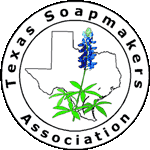|

I have always loved soaps, lotions, and perfumes; from Grandma's "lye" soap, to the fragrant moisturizing soaps and lotions on the market today. But, I have always felt that something was missing. Driven by curiosity, I began researching soap history and oil properties. This led me from the past to the present. During my search I discovered that the main moisturizing ingredient in soap is petroleum, and soap is actually a detergent. So I thought there had to be something better. With my knowledge of hair and skin, from being a cosmetologist since 1974, I set out to make what I believe to be excellent soap and lotion. My soap had to be moisturizing, but not lay on the skin, not oily to the touch, had to have luxurious lather, and a scent that smelled heavenly and made me feel good. I have designed all my own formulas, using the best oils available from around the world. My soap is handmade in small batches, which produces an outstanding quality product. I hope you enjoy the handmade soaps and toiletries that I have created for you.
Peggy
|
 |
|
Check back often, I am always creating something new!
|
|
This website is dedicated to some very important women in my life. My Mom, my Aunt Dora, without her and Ma's handwritten soap recipe my soapmaking may never have happened. Beverly for editing. Vicki, Rita, Deborah, Sunny, Georgia, and Sno for their encouragement. Thank you all!!
| AVAILABLE AT:
|
| THE CUTTING EDGE...................................... 1010 LaSalle Suite W-3.. Sherman ,TX
|
|
|
 |
|
By the beginning of the 19th century, soap making was one of the fastest growing industries in the U.S.
During World War I, the history of soap took another turn when fats were in severe shortage. German scientists created a new form of soap made with various synthetic compounds. Today these "soaps" are called detergents and by law cannot be called soap. Chances are that when you see soap called a "cleanser", it is not soap at all.
Until the 1930's, soap was made by a method called batch kettle boiling. Commercial soap makers had huge three story kettles that produced thousands of pounds of soap over the course of about a week. Shortly thereafter, an invention called continuous process was introduced and refined by Procter & Gamble. This process decreased soap making production time to less than a day.
However, it is virtually impossible for large companies like these to create natural, handmade soaps for an international market.
Handcrafted soaps are not grandma's harsh lye soap.
A Proud Member Of

|
|
|